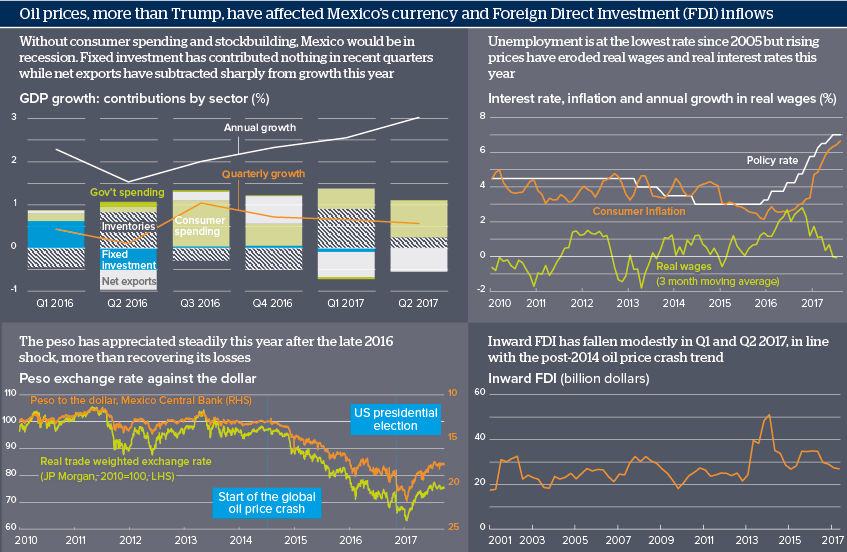Mexico: September budget may prove somewhat optimistic
US hostility appears less of a threat than initially believed, but Mexico’s economy faces other, unforeseen, challenges
Source: Banco de Mexico; JP Morgan; Instituto Nacional de Estadistica, Geografia e Informatica
Outlook
The government’s 2018 budget proposal on September 8 raised Mexico’s growth forecast and predicted less public borrowing, suggesting the country would post a primary surplus for the first time in nearly ten years.
The budget comes amid a new sense of confidence regarding the future of the Mexican economy after the renegotiation of the North American Free Trade Agreement (NAFTA) and follows reports by Coneval of a recent drop in the number of people living in poverty.
However, it also came just hours after a major earthquake. A second earthquake on September 19 caused further destruction and at least 320 deaths. Relief and reconstruction are likely to require significant state spending and could see public borrowing rise again.
Impacts
- Falling real wages will maintain Mexico’s competitiveness vis-a-vis the United States but could ultimately see poverty gains reversed.
- Domestic criticism of NAFTA will increase as the 2018 elections near, though protests may be reduced due to disaster relief efforts.
- Any aid-related corruption scandals would almost certainly end the Institutional Revolutionary Party’s chances of re-election in 2018.
- Earthquake aftershocks still pose a threat and with a month of hurricane season left, destructive storms are possible.
See also
- Volatility of Mexican peso likely to worsen in 2018 - Oct 25, 2017
- NAFTA talks will raise Mexican labour reform pressure - Sep 20, 2017
- More graphic analysis
